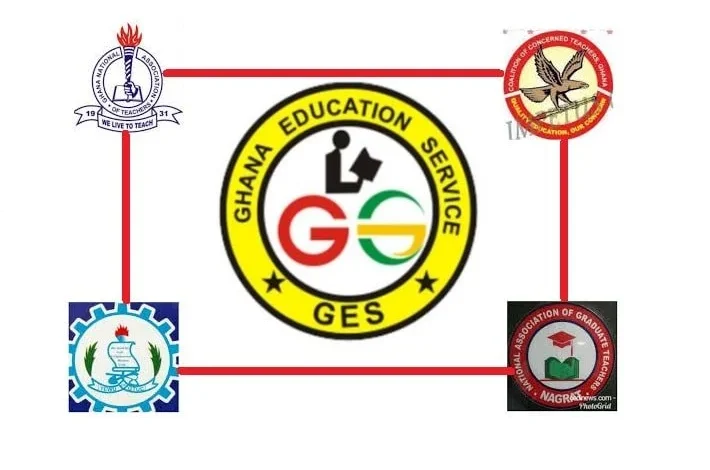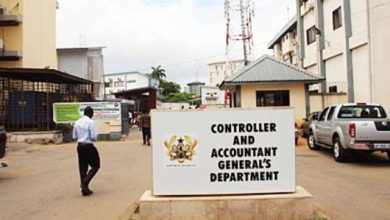Teacher Unions Express Deep Concern Over Delay in Payment of Allowances

A new letter jointly issued by three major teacher unions—GNAT, NAGRAT, and PRETAG—has brought national attention to the growing frustration among educators over the delayed payment of two key allowances. The document, dated 26th November 2025, was addressed to the Minister of Education and copied to top government agencies, including the Ministry of Finance, the Ghana Education Service (GES), the Fair Wages and Salaries Commission (FWSC), and the Controller and Accountant-General’s Department (CAGD).
In the letter, the unions expressed their strong displeasure at the government’s inability to honor the payment of the Continuous Professional Development Allowance (CPDA) and the Career Development and Incentive Scheme Allowance (CDISA)—benefits that teachers were assured would be paid in November 2025 as part of the 2024 Collective Agreement.
Background to the Concern
According to the unions, they were taken aback by a press release from the Controller and Accountant-General’s Department, which announced its inability to process the two categories of allowances for teachers. This development contradicts earlier commitments agreed upon during negotiations with teacher unions and documented in the collective agreement.
For many teachers across the country, these allowances are not mere bonuses but essential parts of their welfare that support professional growth and career development. The CPDA enables teachers to purchase learning materials, attend training workshops, and meet CPD requirements, while the CDISA provides incentive support to enhance productivity in the classroom.
Unions Demand Immediate Action
The leadership of GNAT, NAGRAT, and PRETAG issued the letter to formally register their dissatisfaction, stressing that the delay has caused unrest among teachers nationwide. They called on the Minister of Education to intervene swiftly by ensuring that the allowances are paid without further excuses or delays.
The unions also emphasized that the issue, if not addressed promptly, could have broader implications on the labour front. They urged government institutions to uphold the commitments captured in the collective agreement, warning that failure to do so could disrupt the peaceful working environment within the education sector.
Excerpt From the Letter
The unions stated plainly:
“We hereby register our strongest displeasure with the Ministry of Education, the Ministry of Finance, the Ghana Education Service, the Fair Wages and Salaries Commission and the Controller and Accountant General’s Department. We call on the Hon. Minister for Education to ensure the payment of the two categories of allowances as agreed by the collective agreement.”
This strong wording underscores the seriousness of the unions’ concerns and reflects the growing tension within the teaching community.
Signatories and Copies
The letter was jointly signed by:
- Thomas T. Musah, General Secretary, GNAT
- Eric Agbe-Carbonu, President, NAGRAT
- King Ali Awudu, President, PRETAG
Their unified stance demonstrates a solid front among teacher unions as they demand accountability and transparency.
Copies of the letter were sent to key government offices, including:
- The Minister for Finance
- The Director-General of the Ghana Education Service
- The CEO of the Fair Wages and Salaries Commission
- The Controller of CAGD
This wide circulation highlights the unions’ intention to ensure that all responsible bodies are fully aware of the dissatisfaction and the urgent need for action.
The Growing Tension Among Teachers
Across the country, thousands of teachers are expressing dissatisfaction over what they describe as a repeat of familiar challenges—delayed payments, broken promises, and inadequate communication. For many, the allowances were factored into their financial plans for the month, and the disappointment has been overwhelming.
Teacher unions argue that consistently delaying agreed payments demoralizes educators and undermines the quality of education delivery. They insist that respect for agreements is essential for maintaining trust between government agencies and the teaching community.
Conclusion
The letter from GNAT, NAGRAT, and PRETAG serves as a strong reminder that teachers’ welfare remains a critical aspect of national development. As the Education Ministry reviews the concerns raised, stakeholders in the education sector and the general public await timely action to restore calm and ensure that teachers receive what is rightfully theirs.
Until then, the unions’ unified voice continues to echo across the country, calling for fairness, respect for agreements, and prompt payment of allowances that support the professional lives of Ghana’s hardworking teachers.




